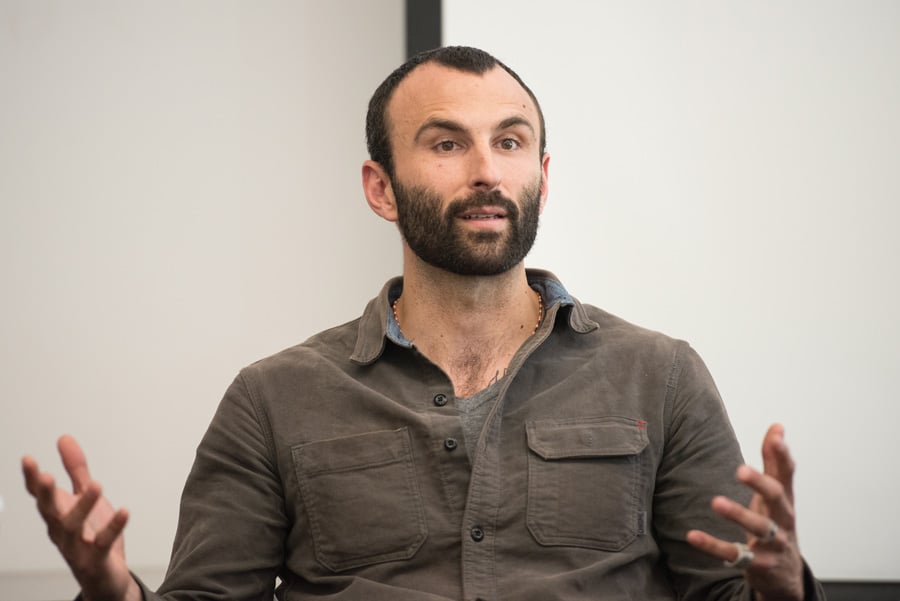Journalist discusses career as international crisis reporter
Colin Boyle/Daily Senior Staffer
Multimedia journalist and filmmaker Jason Motlagh speaks at a Medill event in Fisk Hall on Monday. He shared his experiences as an international crisis reporter with students.
May 2, 2017
After earning a degree in foreign affairs, Jason Motlagh took a job in Kodiak, Alaska, as a fisherman. He was in search of an adventure, he said.
This same sense of adventure led Motlagh to a career in international crisis reporting, which he spoke about to students during an event Monday. The talk, held in Fisk Hall in front of about 20 people, was sponsored by the Medill School of Journalism, Media, Integrated Marketing Communications.
Motlagh, a multimedia journalist and filmmaker, talked to students about the toll that crisis reporting took on his mental health. He has reported on human rights in more than 40 countries, and visited NU as a grantee of a Pulitzer Center on Crisis Reporting.
Motlagh shared a memory of reporting from Afghanistan when a suicide bomber detonated two blocks from where he was sleeping. Reporting from high-intensity environments began to affect his emotional health, he said.
“I got to a point where I was so numb and making reckless decisions that you could argue I had a death wish,” Motlagh said.
Motlagh said he became familiarized with danger because he often found himself in its midst. While reporting, he caught malaria in Niger and was held hostage at gunpoint in India, he said.
Earlier in his career, Motlagh took an editing job at the American Press Institute, but he was “immediately bored to tears.” He wanted to be back in the field. Realizing this, his editor sent him to Afghanistan to satisfy his desires and keep him on staff.
“I went, spent two weeks drawing experience, got back, quit my job, then went back to Afghanistan,” Motlagh said. “I said, ‘As long as I can make ends meet, I’m going to continue freelancing.’”
Since beginning his journalism career, Motlagh has broadened his skillset to audio and video.
He has freelanced for The Atlantic, National Geographic, Al Jazeera Plus and Al Jazeera English.
Medill sophomore Isabella Jiao, who attended the event, told The Daily she was interested in how Motlagh utilized film to tell stories. She said she likes to learn about areas that are very different from her own, and being an international student, she said she is fascinated by people with interesting stories.
“When I hear a good one (story) I want to tell it,” Jiao told The Daily. “His outlook and his work is similar to what I want to do in the future.”
Journalism runs in Motlagh’s family — his great-grandfather was a “radio man” and his grandmother traveled around Europe with a typewriter reporting on post-World War II conditions, he said.
Medill Prof. Craig Duff said the school brings people like Motlagh to campus because they offer a different perspective from many Medill professors who continue to report domestically while teaching. Instead, Motlagh represents another aspect of the industry that consistently works abroad.
“Any opportunity to have real journalists talk about what they’re doing and how they’re out in the world functioning is really useful for students,” Duff told The Daily.
Email: [email protected]
Twitter: @juliaesparza10


